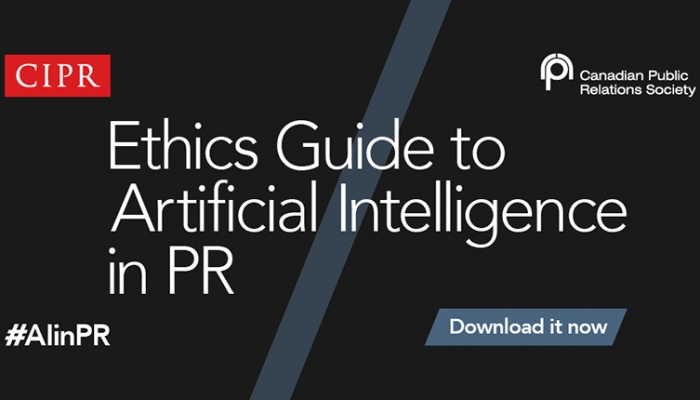CIPR and CPRS publish world’s first AI in PR Ethics Guide
The Chartered Institute of Publication Relations (CIPR) and the Canadian Public Relations Society (CPRS) have published an AI in PR Ethics Guide to provide practical advice on working with AI build and deployment teams to make ethical decisions.
Taking the position that public relations practitioners have a responsibility to act as ethical guardians in the use of artificial intelligence, the guide posits that the industry must have a working understanding of its possible applications and ask the questions tech AI seniors and specialists may miss.
While legal regulations can often be too slow to keep up with modern technologies, PRs are urged by the AIinPR Panel to help keep their organisation’s use of AI ethical and safe when it comes to products, tools, platforms and services.
The panel said: ‘Understanding ethics is hard enough, understanding the potential pitfalls and ethical challenges of AI makes it even harder.’
‘We wanted to do two things with this guide: first, take public relations professionals through a decision-making framework that will educate them on AI itself and the bigger issues it generates. Second, guide them through some challenging ethical specifics such as using the LinkedIn Insight tag and facial recognition software. Writing this guide has been new territory and a huge and complex job.’
AIinPR panel chair Kerry Sheehan believes knowledge of AI is essential for the public relations industry going forward:
‘With the possibility of serious negative consequences, to businesses, organisations and society, springing directly from AI projects, there needs to be the utmost focus by PRs on ensuring ethics is at the forefront and ethical standards are upheld. AI readiness isn’t just a tech issue, it is an ethics issue.’
Find out more about the CIPR AIinPR Panel and download the new ethics guide on the website. Read up on the launch of its literature repository ‘The Effects of AI on the Professions’ here.






Leave a Comment